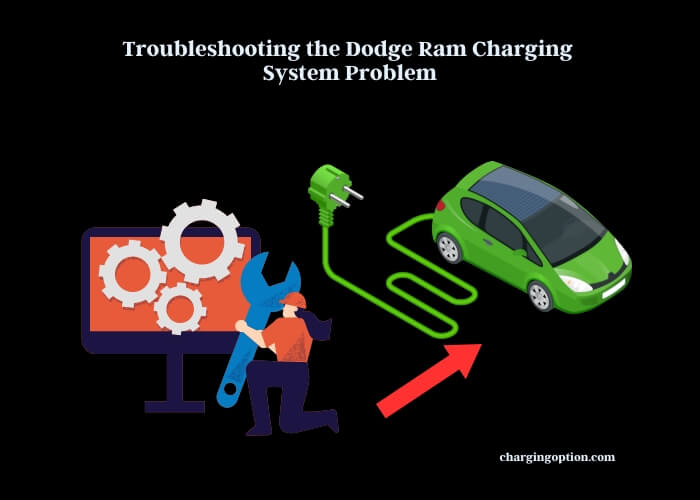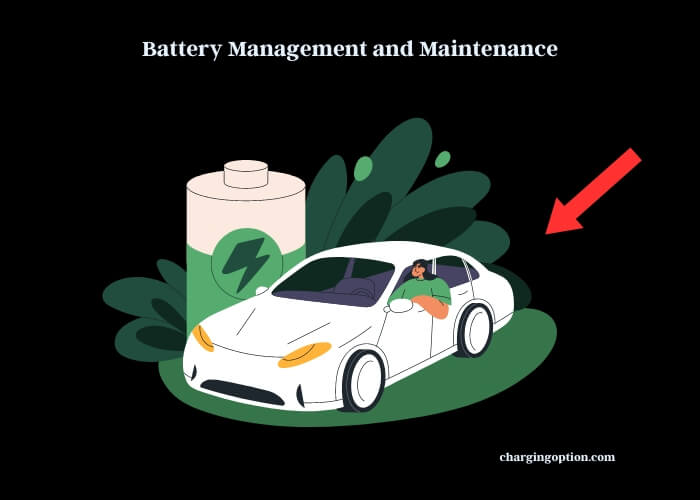The Dodge Ram charging system problem typically refers to a failure or malfunction within the vehicle’s electrical charging system. It can lead to the battery not charging properly or other related electrical issues that can affect the overall performance of the truck.
Now, let’s talk about the key components involved in this problem. The alternator is what charges the battery while the vehicle is running. If it fails, the battery will not recharge, and eventually, the truck won’t start. The voltage regulator ensures that the battery receives the right amount of charge. If it’s not working right, you can expect problems with both the battery and the alternator.

Wiring and connectors play a crucial role too. Damaged or corroded wires can interrupt the flow of electricity, causing a weak connection. This will lead to poor charging performance. Fuses and grounding are other areas that can affect the charging system. A blown fuse or improper grounding can cause a total system failure.
Rectifier and terminals are also involved in this mix. The rectifier converts the alternator’s AC output to DC to charge the battery. If it fails, the battery won’t charge. Terminals need to be clean and tight for the electricity to flow properly. Loose or corroded terminals can also lead to charging issues.
So, there you have it! All these parts have to work together perfectly to keep your Dodge Ram’s charging system up and running. If you want to know more about this topic and how to fix these common problems, keep reading the detailed article below!
Overview of Dodge Ram Charging System
Function and Importance
Your Dodge Ram’s charging system is like the heart of the truck. It pumps energy throughout, ensuring everything runs smoothly. Just like you can’t ignore a heart problem, you shouldn’t neglect a dodge ram charging system problem. This system is made up of the alternator, battery, wiring, and several other parts. Together, they power your vehicle’s electrical components and keep the battery charged.
Typical Symptoms of a Problem
Are your lights dimming? Is the engine struggling to start? These might be signs that something’s wrong with the charging system. Knowing what to look for is the first step to fixing the issue. Other warning signs could include strange noises or warning lights on the dashboard.
The Alternator: Heart of the Charging System
Common Issues with Alternator
The alternator is like the engine’s workout buddy, keeping the battery charged and energized. But what happens if it starts slacking off? You’ll face problems like a drained battery or even total vehicle shutdown.
How to Test and Replace
Testing and replacing the alternator might seem intimidating, but it’s like fixing a bike – you need the right tools and a bit of patience. Various tools can check the alternator’s performance, or you could even use a voltmeter. Replacement usually involves removing bolts and connectors and fitting the new part.
Signs of Alternator Failure
| Symptom | Possible Cause |
| Dimming Lights | Alternator not charging |
| Warning Lights | Electrical fault |
| Strange Noises | Worn-out parts |
| Vehicle Won’t Start | Complete failure |
Voltage Regulator: Controlling the Power
Role in Charging System
Think of the voltage regulator as the conductor of an orchestra, controlling the flow of electricity. If the voltage gets too high or too low, it can cause serious issues. That’s why this little gadget is crucial in your Dodge Ram.
Symptoms of Malfunction
Like an out-of-tune instrument in an orchestra, a failing voltage regulator can create a real mess. You might notice the lights flickering, the battery boiling, or even the engine stalling. These symptoms are your truck’s way of saying, “Hey, something’s wrong here!”
DIY Fixes
Is DIY more your style? You’re not alone! Fixing a voltage regulator can be like assembling a puzzle. You’ll need to locate the regulator, check for signs of damage, and replace it if necessary. Just grab your tools and follow a good guide, and you’ll be on your way.
Battery Management and Maintenance

Choosing the Right Battery
Selecting a battery is kind of like picking the right pair of shoes. It must fit perfectly, or else you’ll run into problems. Knowing your truck’s requirements and choosing a battery that meets those needs is key.
Common Battery Problems
Just like a smartphone, a truck battery can have its own set of problems. It might not hold a charge, or perhaps it dies too quickly. Sometimes it’s a simple fix, while other times it might mean a new battery is in order.
Maintenance Tips
Batteries need love, too! Regular maintenance is like giving your battery a spa day. Keeping it clean and checking for damage can extend its life and keep your truck running smoothly.
Battery Types and Specifications
| Battery Type | Voltage | Lifespan | Best For |
| Lead-Acid | 12V | 3-5 years | General use |
| AGM | 12V | 4-6 years | High performance |
| Lithium-Ion | 12V | 5-8 years | Lightweight requirement |
Wiring and Connectors: Ensuring Connectivity
Potential Issues with Wiring
Wires are the highways of your truck’s electrical system, and just like roads, they can face wear and tear. Cracked or corroded wires can be like roadblocks, causing interruptions in the flow of electricity.
Repair and Replacement Guide
Fixing wiring might seem like untangling a giant knot of Christmas lights, but with a bit of patience, you can do it. Identify the troubled area, remove the damaged section, and replace it with new wiring. Simple, right?
Fuses and Grounding: Protection and Stability
Importance of Proper Grounding
Imagine building a house on shaky ground. That’s what improper grounding in your truck’s charging system is like. It’s a foundational issue that can cause a myriad of problems.
Troubleshooting Fuses
Fuses are like the bouncers of the electrical system, keeping everything in check. If one blows, it’s like a red flag saying, “Hold on, something’s not right!” Checking and replacing them is often a simple process.
Common Fuse Problems and Solutions
| Problem | Solution |
| Blown Fuse | Replace with same rating |
| Loose Fuse | Reinsert or replace |
| Corroded Connection | Clean and tighten |
Rectifier: Converting Power for the Battery
How the Rectifier Works
The rectifier’s job in the charging system is akin to translating a foreign language. It converts the alternator’s AC output to DC, making it understandable, or rather usable, for the battery.
Signs of Rectifier Failure
If the rectifier fails, it’s like a translator gone rogue. The battery won’t understand what the alternator is saying, leading to a failure in charging. Look out for a weak battery or a malfunctioning alternator as signs.
Replacement Guidelines
Replacing a rectifier is a bit like swapping out an old appliance for a new one. You’ll need to remove the old part, install the new one, and ensure all connections are secure.
Terminals: Securing the Connections
Cleaning and Tightening Terminals
Terminals are like the handshake between the battery and the wires. A firm grip is vital for good communication. Keeping them clean and tight ensures a strong connection.
Potential Problems and Fixes
Loose or corroded terminals are like a weak handshake – they just don’t communicate well. If your vehicle’s struggling to start or the lights are dim, it might be a sign to check those terminals.
Professional Help vs DIY: What’s Right for You?
Pros and Cons of Professional Service
Think of professional service like going to a fancy restaurant, while DIY is cooking at home. Sometimes, the restaurant experience is worth it for a hassle-free solution, but it comes at a price. Knowing when to seek professional help can save you time and frustration.
DIY Resources and Tools
Feel like rolling up your sleeves and getting your hands dirty? Like a home-cooked meal, a DIY repair can be rewarding. There are plenty of resources available, from manuals to online forums, to help you on your way.
Safety Considerations
Whether you’re a DIY newbie or a seasoned pro, safety should be your number one priority. It’s like putting on a seatbelt – it just makes sense. Always follow safety guidelines and use the proper tools.
Maintenance Schedule: Keeping Your Charging System Healthy
Recommended Routine Checks
Routine checks on your charging system are like regular visits to the doctor. They can catch problems before they become major issues. Follow the manufacturer’s guidelines and keep your Dodge Ram in tip-top shape.
Preventive Measures
Prevention is always better than cure, right? Simple things like keeping the system clean and regular inspections can keep those dodge ram charging system problems at bay.
Just like a well-oiled machine, your Dodge Ram’s charging system needs regular care and attention. By knowing what to look for and how to fix it, you can keep your truck running smoothly. Whether you’re a DIY enthusiast or prefer professional help, this guide has got you covered.
Read More:
- Charging Hybrid Cars: What You Need to Know
- Is It Cheaper to Charge an Electric Car Than Gas?
- Car Alarm Goes Off When Charging Battery: Solved!
- Charging in Cars: A Comprehensive Guide
- 2022 Honda Passport: Troubleshooting Wireless Charger Issues
- Troubleshooting Your E Collar Not Charging: A Complete Guide
References
